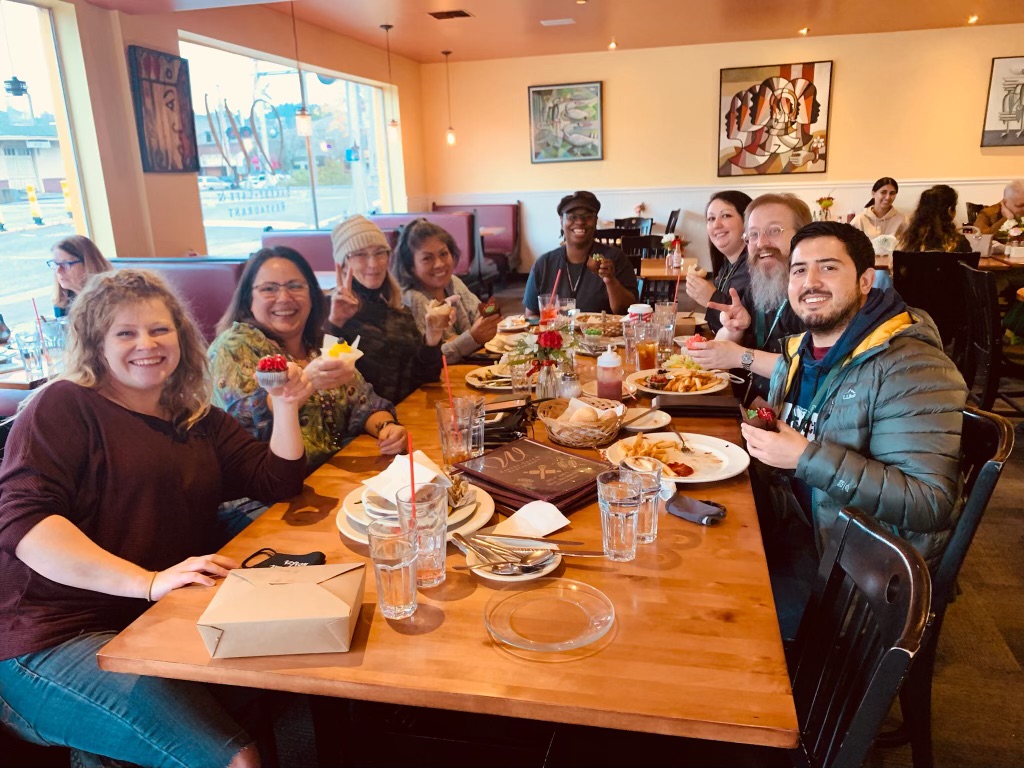
A seamless transition from the criminal legal system is nearly impossible without the right support in place. As Jeremy Lemoine puts it, “Even if you have all the willpower in the world, there are many, many, many, barriers.”
Lemoine is a Reentry Program Manager at REACH, which is contracted through King County’s Behavioral Health and Recovery Division. The goal of the Reentry Care Coordination Team (RCCT) is to help participants transition smoothly from the criminal legal system to successful engagement with community-based services, like housing support and harm reduction-based care coordination.
Lemoine says crimes of poverty, desperation, and trespassing often lead to incarceration for adults without homes and those who struggle with challenges like mental health or substance use. Oftentimes, these same folks achieve a period of sobriety and stabilization while in jail leading them to make the decision to seek longer-term treatment. Yet, the barriers are persistent and systemic.
“The decision to get sober in King County does not mean you will stop using alcohol or other substances,” Lemoine explained. “These violations, like failure to appear in court, often happen because the person doesn’t have a phone or any money – they’re sleeping in a doorway and in a desperate situation. To cover up the emotional pain of existing in poverty, people sometimes turn to fentanyl and methamphetamines.”
Helping recently incarcerated adults achieve stability means concentrating on the basics. This includes assisting people with treatment or helping them secure items that are essential for a fresh start such as identification, health insurance, and clothing.
“We’ll write down all your sizes while you’re in custody, and we’ll go to Ross,” Lemoine explained. “We’ll buy jeans and a couple of shirts. It’s very difficult to come out of jail and attempt to get a job when you don’t have a bra.”
Lemoine has seen the impact this program is making first hand. In 2021, the RCCT assisted a woman who had immigrated from East Africa. Prior to her arrest, she relied on stealing to get basic living necessities. While in jail, the RCCT began to conduct outreach efforts to help stabilize her life. As the relationship between the reentry team and the woman grew stronger, so did RCCT’s ability to help her.
“Over time she began to trust us,” Lemoine shared. “The long-term case management provided stability, and she is now able to work with temporary employment agencies. She’ll soon have her own apartment and new life.”
Recognizing people of color are disproportionately impacted by the criminal legal system, the RCCT program prioritizes individuals who have experienced multiple systemic barriers and lack access to resources. Care coordination services are respectful of client choice, supportive of client autonomy, and centered on each participants’ self-determination and individual goals.
For Lemoine, that means supporting people as they successfully integrate back into society – something that is a unique experience for each person. With the help of the RCCT team, participants can establish goals and work alongside their case manager to help get them there.
“If all the steps are there, then the most vulnerable people can reintegrate into society,” Lemoine said. “We’re helping people to get their lives back.”




